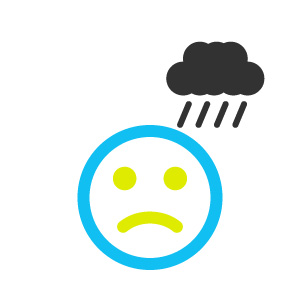You are at an interview, you have carefully prepared for every kind of question you can think of about your work history, you have answered all the question’s asked and so far you are pleased with your performance.
You feel confident and believe it’s going your way.
Then up pops the negative question;
– What kind of people do you not get along with?
– Have you ever had a manager, you didn’t get on with?
– What kind of jobs or tasks, do you not like doing?
– Have you ever had a row with one of your superiors?
– What kind if decisions do you find hard to make?
And so the list goes on and on.
In an effort to give the impression that you have experience in every aspect of your employment you may attempt to answer these questions with possible real issues where you had a dispute, an argument or a plain good old fashioned row with someone you worked with.
To do so is the quickest way to have yourself deleted from the ‘possible candidate’ list.
By admitting to being involved in any form of discourse, it immediately raises doubts about your character or suitability.
In a past job if you had an issue with a manager no matter how right you may have been, to try and explain this will never ever convince your interviewer that you were right, it just will never come across as credible.
The interviewer will simply tick the NO box beside the;
‘Gets along well with colleagues’ question.
Later that day, after viewing the notes on six or more interviews that day the interviewer will only see the No comment and give no further thought to your explanation.
Always beware of the negative questions; they will ruin your presentation every time, no matter how careful or well balanced your response is.
If asked such a question, I would advise you shut it down completely. If, for example, you are asked: ‘what kind of a person do you find it hard to get on with?, respond by looking vaguely into space for a second or two as you try to recall such an event.
Then respond by saying ‘No I don’t think I have ever had a colleague that I didn’t get on with. I think I get on well with most people. You won’t be challenged on this. Your reply will end that thread of questioning.
There is, however, one negative question that you do have to reply to and that’s;
What are you not good at?
Everyone has a weak point. So in readiness or this you must prepare an example that’s not too innocuous, that’s not too serious, but most importantly, you must also have the cure for your shortcoming.
Good preparation for such a question is to think carefully about a past experience.
Recall of some issue where you ‘learned a lesson’ in some situation and use that lesson as an example of the remedy you have developed to deal with the issue. That’s your cure. By dealing with a question of this nature you will be explaining an issue or event were you had had difficulty but now have the matter under control.
A very timid effort at this was when one of my clients replied to the question by saying they always had a very untidy desk and took ages to find anything they needed, every time. They added that their new year resolution was to tidy away for the last five minutes every evening so their desk was ready to go first thing every morning.
While it’s not a great example and not as good as it could be, it explains the sentiment of what I am saying.
The important point is that it’s a real example and it worked. The interviewer is unlikely to say ‘that’s not good enough tell me another’. They will accept it and move on as it’s not an issue any more.
Keep smiling, keep positive and always speak about past colleagues and past employers with fond memories.
Colm Cavey has over 24 years’ experience in helping people change careers and find the kind of job they want. Colm can review your CV, help you organise your job hunt and provide one to one interview and presentation coaching or all of those elements together in a full Career Change programme. To find out more about Colm you can contact him directly on 086-3017207 or via his company Professional Career Consulting
